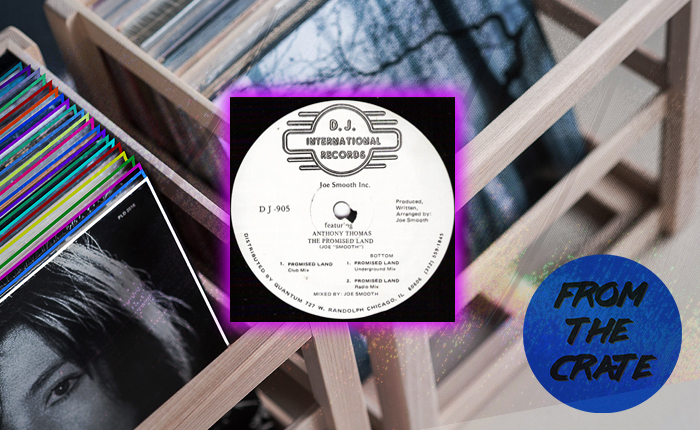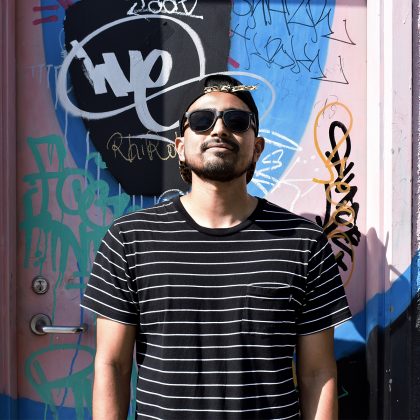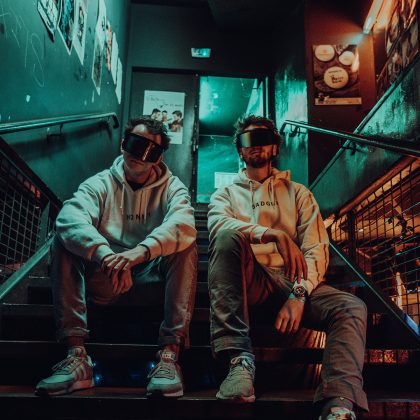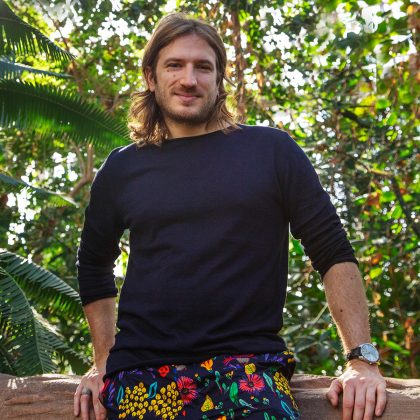Joe Smooth “Promised Land”
The birth of our underground brand, Factory 93, not only brought on an adrenaline rush reminiscent of the renegade warehouse era of raving—on which Insomniac was founded—but it also had us thinking back to all the people, places and parties that made this whole operation possible. And with that came a burning desire to crack open our collection and dust off the classic records we couldn’t live without. Through our From the Crate series, we’ll be breaking out both seminal and obscure cuts alike, imparting some knowledge in the process.
An oft-played dance track, even one sitting firmly within the canon of club classics, can evoke a twinge of indifference in a crowd. Familiarity can breed… well, not quite contempt, but perhaps a feeling of been-there-danced-to-that ennui. People may clap their hands, and people may stomp their feet, and people may even let out a feeble “whoop”—but the response can be more Pavlovian in nature rather than anything truly heartfelt.
Then, there’s “Promised Land.” Three decades after its release, and after countless late-night airings, the song is a house music staple that has lost little of its power to work its magic on even the most jaded of dancers and the most cynical of revelers. Coming out in 1987 on Chicago’s essential D.J. International label, the original version was credited to Joe Smooth Inc.; later versions shortened that credit to Joe Smooth. And in typically casual early-house nomenclature, it was titled both “The Promised Land” and simply “Promised Land” on the label, with the latter becoming the standard moniker.
By the time “Promised Land” had hit the shelves, Smooth (real name: Joseph Lorenzo Jr. Welbon) had already proved himself a player on the Windy City scene. Among other notable contributions, he was an early resident, starting in 1983, at his hometown’s iconic SmartBar, and he lent his voice—not to mention his Ensoniq Mirage sampling keyboard—to Chip E.’s seminal 1986 TB-808 workout, “Time to Jack.” Other early production credits include Professor Funk & the House Brothers’ “Work You Body Rap” and Frankie Knuckles’ “You Can’t Hide,” both also from 1986.
By 1987, Chip E. had become Vice President of A&R at D.J. International, and he invited Smooth to join the roster. Before long, Smooth’s “Going Down,” featuring Anthony Thomas on vocals, was committed to vinyl. The propulsive, skeletal piano-houser—with Thomas issuing commandments to move your body and let the music set you free—was a prime example of late-’80s Chicago party music. But it did little to prepare clubbers for what was soon to follow.

The club mix of “Promised Land,” the go-to version for most DJs, is simple in construction. The ingredients include a house rhythm graced by hissing hi-hats and propulsive conga; elegant synth strings; a few piano chords floating above a lithe, disco-flavored bassline; and Anthony Thomas’ quietly confident vocals, here far more restrained than on “Going Down.” His opening words—“Brothers, sisters / One day we will be free”— echo Martin Luther King’s “I Have a Dream” speech. Later, the lyrics take on a more overtly theological tone, with lines like “When the angels from above/Fall down and spread their wings like doves.” But the song’s spirituality arguably transcends any specific beliefs. When Thomas reveals that “We’ll walk hand in hand/Sisters, brothers, we’ll make it to the Promised Land,” the emphasis seems to be on us, on humanity, rather than a divinity. It’s more utopian than Christian in emphasis.
The original 12-inch features a radio version, as well as the Underground Mix, which emphasized melody over rhythm and pushes the gospel feel of the track to the fore. A few months later, “Promised Land” was released in the UK on Westside Records; that version’s Freestyle Mix—which isn’t freestyle at all, but rather a nicely edited dub—is well worth tracking down. The song’s been covered numerous times, most notably by Paul Weller and Mick Talbot’s combo, the Style Council; the band’s forceful (yet relatively faithful) reworking of the song reached the #27 slot in the UK singles charts in 1989 (Smooth’s own version, meanwhile, eventually hit the 56th slot). Smooth continued to produce tracks for D.J. International and other labels, and while a few of his releases had success in the clubs—“I’ll Be There” and “They Want to Be Free,” among them—none had anywhere near the impact of “Promised Land.”
Over the years, Smooth has worked in various capacities with acts ranging from Whitney Houston and Destiny’s Child to Art of Noise and New Order, and he still pops up for the occasional DJ gig. But whatever else he’s done, his legacy is secure—ask anyone who’s heard the song played in a darkened club, late at night, when the crowd is in that magical state that can transform a group of individuals into an interconnected consciousness. Those congas kick in, those strings soar, you hear the words, “Brothers, sisters,” and a switch is flipped, worries fade, and you’re in the absolute best place you could ever be.
In a recent interview, Smooth stated that his intentions for “Promised Land” were straightforward: “I studied my favorite hits from Motown and was determined to write a classic song with the same type of spirit in our house style.”
He did far more than that. He gave us as beautiful a moment as one can possibly have in clubland.





